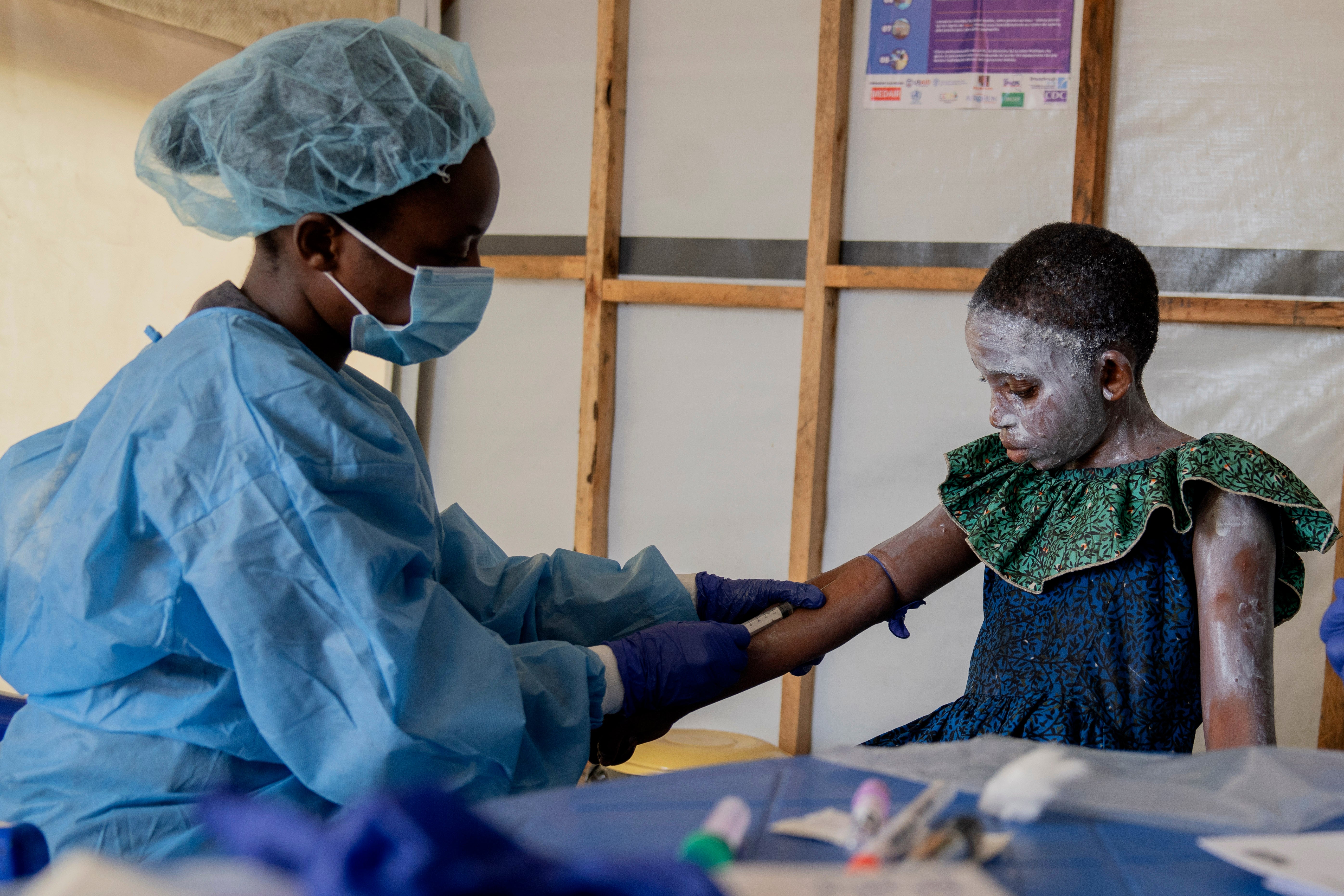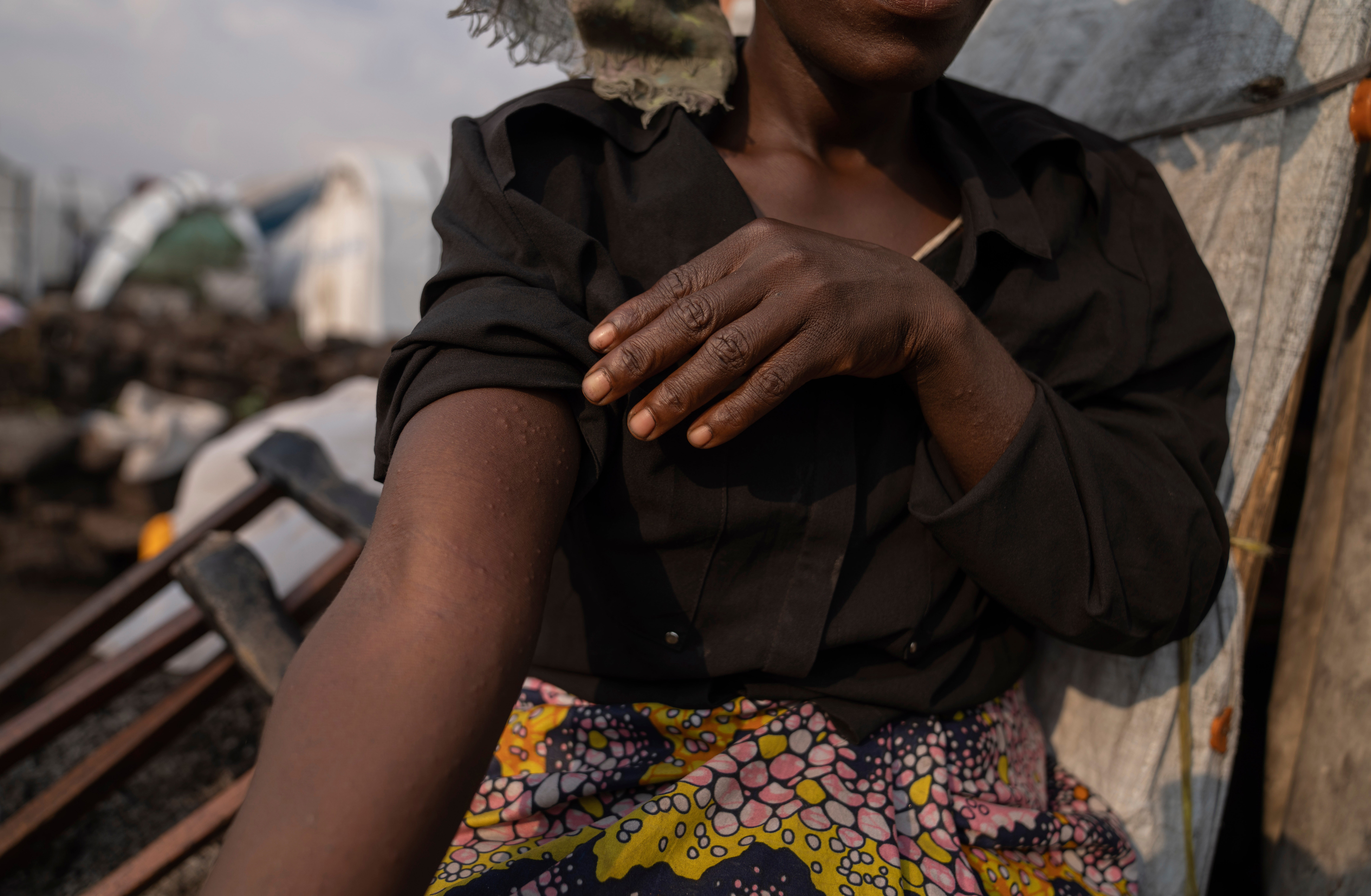What the new mpox strain in Europe means for the UK
The UK is preparing for any potential cases of mpox

Your support helps us to tell the story
From reproductive rights to climate change to Big Tech, The Independent is on the ground when the story is developing. Whether it's investigating the financials of Elon Musk's pro-Trump PAC or producing our latest documentary, 'The A Word', which shines a light on the American women fighting for reproductive rights, we know how important it is to parse out the facts from the messaging.
At such a critical moment in US history, we need reporters on the ground. Your donation allows us to keep sending journalists to speak to both sides of the story.
The Independent is trusted by Americans across the entire political spectrum. And unlike many other quality news outlets, we choose not to lock Americans out of our reporting and analysis with paywalls. We believe quality journalism should be available to everyone, paid for by those who can afford it.
Your support makes all the difference.The first case of a new infectious strain of mpox has been detected in Europe.
Experts said the new strain is “associated with a more severe disease and higher mortality rates” than the one that caused the global mpox outbreak in 2022.
It comes after the World Health Organisation (WHO) declared outbreaks in Africa a global emergency.
Mpox symptoms
What are the symptoms of mpox and how does it spread?
Mpox is passed on through close physical contact, including during sexual contact, kissing, cuddling or holding hands.
Symptoms include a high temperature, headache, muscle aches, backache, swollen glands, exhaustion, joint pain and a rash.
The new strain of mpox is known as clade 1b and it emerged in the Democratic Republic of the Congo (DRC) last year, according to WHO.
The disease is now rapidly spreading to neighbouring countries in Africa, mainly through sexual networks, WHO said, with one case confirmed in Europe.
Where was the first European Mpox case detected?
Swedish health officials announced that there has been one confirmed case of clade 1b on Thursday.
The country’s public health agency said a patient sought healthcare in Stockholm and is understood to have been infected during a visit to Africa.

What do UK health officials say?
Before the case in Sweden was announced, and following the declaration of clade 1b as a global emergency by the WHO, the UK Health Security Agency (UKHSA) said it was on alert for any cases of the virus.
Officials said there are currently no cases in the UK and the risk to the population is low.
However, the UK is preparing for any potential cases by ensuring clinicians are aware of mpox and able to recognise cases promptly.
Rapid testing is also being made available, while protocols are being developed for the safe care of potential patients to prevent transmission.
Why has the WHO declared a global emergency?
Mpox was first detected in humans in the DRC in 1970 and is considered endemic to countries in Central and West Africa.
However, WHO said the recent surge of cases in DRC and its spread to neighbouring countries constitutes a public health emergency of international concern (PHEIC) under the International Health Regulations (2005) on Wednesday.
According to WHO, mpox has been reported in DRC for more than 10 years, with the number of cases increasing steadily over the period.
So far in 2024, there have been more than 15,600 cases of mpox and 537 deaths, which the WHO said exceeds last year’s total.
There have also been 100 lab-confirmed cases of clade 1b in four countries neighbouring the DRC that have not reported mpox before: Burundi, Kenya, Rwanda and Uganda.
Has this happened before?
Yes, it is the second time in two years the WHO has declared mpox a PHEIC.
The first was in 2022 after its rapid spread through sexual contact in countries that had not reported cases before.
The emergency was declared as over in May 2023 following a sustained decline in global cases.
What do the experts say?
Dr Jonas Albarnaz, a research fellow specialising in pox viruses at the Pirbright Institute, said the case of clade 1b in Sweden “is concerning for two main reasons”.
“First, this is the first clade 1 mpox virus case outside Africa. This indicates that the extent of the international spread of clade 1 outbreak in DRC might be larger than we knew yesterday.
“And second, clade 1 mpox virus is associated with a more severe disease and higher mortality rates than the clade 2 virus responsible for the international mpox outbreak in 2022.”
Michael Marks, a professor of medicine at the London School of Hygiene and Tropical Medicine (LSHTM), said: “It’s clear that this is the largest outbreak of mpox reported from the region.
“It’s also the largest of the clade 1 mpox virus, which has traditionally been associated with a higher case fatality rate than clade 2, which caused the large global outbreak in 2022.”

How did the UK deal with the last outbreak?
Before the spring of 2022, cases in the UK were usually associated with travel to or from West or Central Africa.
However, in May of that year sustained transmission of the virus was identified in the UK, leading to a large outbreak mostly in men who are gay, bisexual or have sex with other men.
A vaccination programme was launched in the UK in the summer of 2022 and closed the following July.
According to the UKHSA, there were 3,732 confirmed and highly probable mpox cases reported in the UK up to December 31, 2022. In 2023 and up to July 31 this year, 286 cases were reported.
Of these, 269 were in England – with 116 patients presumed to have caught the virus in the UK and 82 outside of the country.





